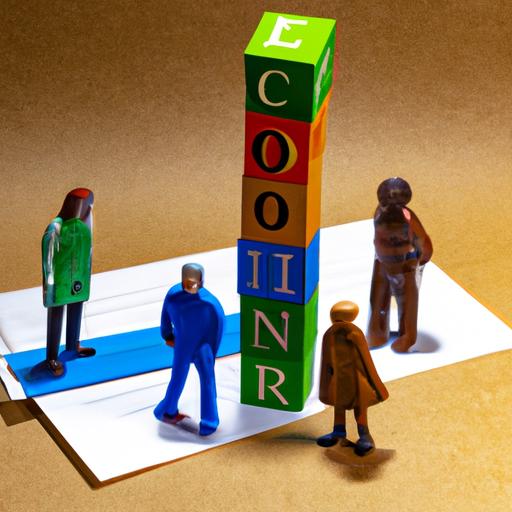Introduction
Do you ever find yourself struggling to connect with others? Does the mere thought of socializing send shivers down your spine? If so, you’re not alone. Many individuals face challenges when it comes to social interactions, and these difficulties can have a significant impact on our mental well-being. In this article, we will delve into the importance of socializing and explore the effects it has on our mental health.
Socializing is not just about having a good time; it plays a vital role in our overall happiness and emotional stability. Human beings are social creatures by nature, and meaningful connections with others are essential for our mental well-being. When we engage in social interactions, we experience a sense of belonging, support, and validation. These interactions provide us with opportunities to share our thoughts, emotions, and experiences, fostering a sense of connection and empathy.
However, for many individuals, socializing can be a daunting task. Social anxiety, lack of self-confidence, difficulty initiating conversations, fear of rejection, and communication barriers are just a few of the challenges that can hinder our social interactions. These obstacles can lead to feelings of isolation, loneliness, and even mental health disorders such as depression and anxiety.
It is crucial to address these problems and develop strategies to improve our socializing skills. By doing so, we can enhance our overall well-being, build meaningful relationships, and navigate life’s social landscape with confidence. In the following sections, we will explore common problems faced when socializing, the psychological impacts of struggling in social situations, and effective techniques to overcome these challenges. So, let’s dive in and embark on a journey towards improved social connections and mental well-being.
Common Problems Individuals Face When Socializing
Social Anxiety and Its Effects on Social Interactions
Do you ever feel your heart racing, palms sweating, and your mind going blank when faced with a social situation? Social anxiety is a common problem that can significantly impact our ability to socialize effectively. It is characterized by an intense fear of judgment and scrutiny from others, leading to avoidance of social interactions. Individuals with social anxiety may experience physical symptoms like rapid heartbeat, trembling, and sweating, making it challenging to engage in conversations and form connections.
Lack of Self-Confidence and its Influence on Socializing
Confidence plays a crucial role in successful social interactions. However, many individuals struggle with a lack of self-confidence, which can hinder their ability to engage with others. Low self-esteem, negative self-talk, and a constant fear of saying the wrong thing can create barriers to forming relationships. Building self-confidence involves recognizing and challenging negative thoughts, practicing self-compassion, and embracing our unique qualities.
Difficulty Initiating and Sustaining Conversations
Starting and maintaining conversations can be a daunting task for many individuals. The fear of running out of things to say or sounding boring can lead to awkward silences or missed opportunities for connection. Learning effective communication skills, such as active listening and asking open-ended questions, can help overcome these challenges and create engaging conversations. Remember, everyone has interesting stories to share, and showing genuine interest in others can foster meaningful connections.
Fear of Rejection and Its Hindrance to Building Relationships
The fear of rejection is a common barrier to socializing. The fear of being judged, disliked, or excluded can prevent us from putting ourselves out there and forming new relationships. It’s important to remember that rejection is a natural part of life, and not everyone will resonate with us. Overcoming this fear involves reframing rejection as a learning opportunity, building resilience, and surrounding ourselves with supportive individuals who value and appreciate us for who we are.
Overcoming Communication Barriers and Cultural Differences
In a diverse world, communication barriers and cultural differences can pose challenges in socializing. Language barriers, different communication styles, and cultural norms may create misunderstandings and hinder effective interactions. Overcoming these barriers requires open-mindedness, cultural sensitivity, and a willingness to learn and adapt. Embracing diversity can enrich our social experiences and broaden our perspectives.
Limitations of Technology in Fostering Meaningful Social Connections
In today’s digital age, technology has become a significant part of our social lives. While it facilitates easy communication and connection, it also has limitations. Online interactions lack the nuances of face-to-face conversations, making it harder to build deep and meaningful relationships. Striking a balance between online and offline interactions is crucial for developing authentic connections and nurturing our social well-being.
By recognizing and addressing these common problems, we can take the first steps towards improving our socializing skills and fostering meaningful connections. In the next section, we will explore the psychological impacts of struggling with socializing and the importance of overcoming these challenges for our overall well-being.
Psychological Impacts of Struggling with Socializing
Isolation and Loneliness: Exploring the Consequences
When socializing becomes a challenge, individuals often find themselves feeling isolated and lonely. The lack of meaningful connections and interactions can lead to a sense of detachment from others and the world around them. Isolation and loneliness can have profound consequences on our mental well-being, as humans are wired for social connection.
Humans are social creatures, and we thrive on social interactions. When we are deprived of regular social contact, our mental health can suffer. Isolation and loneliness can contribute to feelings of sadness, emptiness, and even despair. It can leave us yearning for connection and understanding, which, when unfulfilled, can result in long-lasting emotional distress.
Effects on Mental Health: Depression, Anxiety, and Low Self-esteem
Struggling with socializing can significantly impact our mental health, leading to the development or exacerbation of various mental health disorders. Depression, anxiety, and low self-esteem are commonly associated with difficulties in social interactions. These conditions can further perpetuate the cycle of isolation, making it even more challenging to engage with others.
Depression often manifests as a persistent feeling of sadness, loss of interest in activities, and a lack of energy. Those who struggle with socializing may experience heightened symptoms of depression due to the absence of positive social connections and support systems.
Anxiety, on the other hand, can intensify when faced with social situations. Social anxiety disorder is characterized by an irrational fear of being judged, embarrassed, or humiliated in social settings. The fear of negative evaluation can be paralyzing, making it incredibly challenging for individuals to engage in social interactions without extreme distress.
Low self-esteem is another psychological impact of struggling with socializing. When faced with difficulties in establishing connections or maintaining relationships, individuals may start to doubt their worth and value. This can lead to a negative self-perception, perpetuating a cycle of self-doubt and further hindering social interactions.
Developmental Challenges in Children and Adolescents
Difficulties in socializing can be particularly impactful during the developmental years of children and adolescents. Social interactions play a crucial role in their emotional, cognitive, and behavioral development. When faced with challenges in socializing, children and adolescents may struggle to develop essential social skills and build healthy relationships.
Children who have difficulty socializing may experience feelings of exclusion and isolation, which can have long-term consequences on their self-esteem and overall well-being. Similarly, adolescents who struggle in social situations may face challenges in forming friendships and developing a strong support network, leading to feelings of alienation and loneliness.
Impact on Overall Well-being and Quality of Life
The impact of struggling with socializing extends beyond the realm of mental health. Our social connections and interactions have a direct influence on our overall well-being and quality of life. Meaningful relationships provide us with emotional support, a sense of belonging, and opportunities for personal growth.
When social connections are lacking, individuals may feel a void in their lives, leading to dissatisfaction and decreased overall well-being. Quality of life can be compromised as social activities, gatherings, and experiences become less accessible or enjoyable.
Understanding the psychological impacts of struggling with socializing is crucial in recognizing the importance of addressing these challenges. By acknowledging the profound consequences that difficulties in social interactions can have on our mental health, we can begin to explore strategies and techniques to overcome these obstacles and improve our social well-being.
Overcoming Specific Socializing Challenges
Navigating Small Talk and Breaking the Ice
Small talk is often seen as a social hurdle that many struggle to overcome. The key to navigating small talk is to approach it with a genuine interest in getting to know the other person. Ask open-ended questions that allow for more in-depth conversations, and actively listen to their responses. Remember, small talk can be the first step towards building a meaningful connection.
Approaching Strangers and Making New Friends
Approaching strangers can be intimidating, but it can also be an opportunity for growth and new connections. Start by finding common ground or shared interests, such as being in the same social setting or participating in an activity together. Be friendly, approachable, and open-minded. Remember, most people are receptive to making new friends and are likely experiencing similar social insecurities.
Building and Maintaining Meaningful Relationships
Building and maintaining meaningful relationships require effort and commitment. Show genuine interest in others by actively listening, being empathetic, and supportive. Invest time and energy into nurturing these connections through regular communication and shared activities. Remember, relationships thrive on mutual respect, trust, and a willingness to make an effort.
Handling Rejection and Overcoming Fear
Rejection is an inevitable part of life, and it can be challenging to handle. Understand that rejection is not a reflection of your worth; it is simply a mismatch of compatibility or circumstances. Instead of dwelling on rejection, focus on self-improvement and personal growth. Overcoming fear involves stepping out of your comfort zone, embracing vulnerability, and learning from each experience.
Coping with Social Pressures and Expectations
Social pressures and expectations can often lead to feelings of inadequacy and anxiety. It is essential to remember that everyone has their own unique journey, and comparisons are often unproductive. Set realistic expectations for yourself and prioritize your own values and goals. Surround yourself with supportive individuals who appreciate you for who you are, rather than conforming to societal ideals.
By addressing these specific socializing challenges, you can develop the skills and confidence needed to thrive in social situations. Remember, each interaction is an opportunity for growth and connection. With practice and perseverance, you can overcome these challenges and create meaningful relationships that enrich your life.
Conclusion
In conclusion, overcoming problems with socializing is crucial for boosting our mental well-being and overall quality of life. By understanding the importance of social interactions and their impact on our mental health, we can take proactive steps to address the challenges we face.
Seeking professional help through therapy and counseling can provide valuable guidance and support in navigating social difficulties. Therapists can help us uncover the root causes of our struggles and develop effective strategies for improving our socializing skills.
Stepping out of our comfort zones is another key aspect of overcoming social anxiety. By gradually exposing ourselves to social situations that make us uncomfortable, we can desensitize ourselves to anxiety and build confidence in our ability to connect with others.
Building self-confidence and assertiveness is essential for successful social interactions. By working on improving our self-esteem and developing assertiveness skills, we can approach social situations with a greater sense of self-assurance.
Enhancing our communication skills, such as active listening and body language, can significantly improve our ability to connect with others. By being present, empathetic, and attentive in conversations, we can foster deeper and more meaningful connections.
Expanding our social circles by joining clubs, organizations, or support groups can provide us with opportunities to meet like-minded individuals and build new relationships. These communities can offer a supportive environment where we can practice and improve our social skills.
Lastly, technology can be utilized to facilitate positive social interactions. While it is essential to strike a balance and not rely solely on virtual connections, platforms like social media and online communities can help us connect with others who share similar interests and values.
By implementing these strategies and techniques, we can overcome the problems we face when socializing and create a fulfilling social life. Remember, building social skills takes time and practice, so be patient and kind to yourself throughout the journey. Embrace the challenges and embrace the growth that comes with it. So go out there, connect with others, and watch as your mental well-being flourishes.



